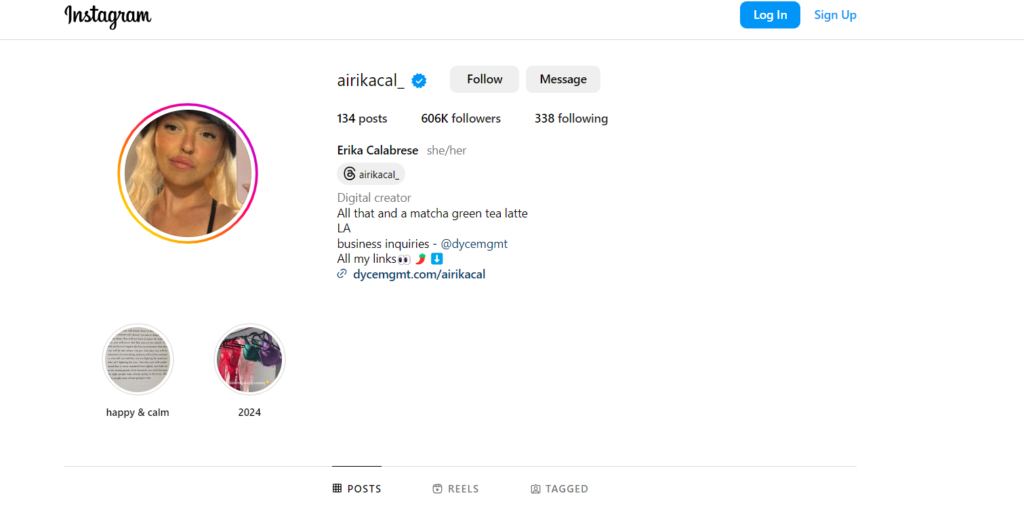Airikacal Leaks: What You Need To Know
Is online privacy truly a myth in the digital age? The recent "airikacal leak" serves as a stark reminder of the vulnerability of personal information and the far-reaching consequences of data breaches. The incident has sent shockwaves across the internet, raising critical questions about the security of online platforms, the ethics of content sharing, and the impact on individuals whose private lives are exposed without consent.
The digital landscape, once hailed as a bastion of freedom and expression, is increasingly marred by the specter of data breaches, leaks, and the unauthorized dissemination of sensitive content. Platforms like Erome, known for hosting erotic content, and others like Pornhub, popular for its extensive library of adult videos, become focal points in this narrative. These sites, along with various social media platforms and specialized forums, often serve as venues where leaked material finds its audience. The allure of "free" content, whether it be photos, videos, or personal information, fuels the demand, perpetuating a cycle of exploitation and vulnerability.
The "airikacal leak" specifically brought to light the potential exposure of numerous individuals. The situation underscores the critical importance of robust security measures across all digital platforms. In addition to the technical aspects of data security, the issue also highlights the need for ethical considerations, especially concerning the creation, distribution, and consumption of online content.
The incident serves as a harsh lesson, emphasizing the need for individuals to be more vigilant in protecting their personal data. It is crucial for users to understand the potential risks associated with sharing personal information online, as well as to remain aware of the privacy settings available on the platforms they use. The incident demonstrates the delicate balance between online expression and individual privacy, a balance that requires constant vigilance and a commitment to ethical behavior from both content creators and consumers.
Below is a table providing some insights into the possible data exposed by the "airikacal leak". However, it is important to note that due to the nature of the situation, and potential for ongoing developments, the information presented below is hypothetical. While it is difficult to ascertain with certainty the exact data exposed in the leak, this breakdown aims to give a general understanding of the scope of such breaches:
Given the sensitivity of the topic and the potential for ongoing legal and ethical concerns, specific details about the individual(s) or entities involved in the "airikacal leak" are subject to change. Any information published should be carefully vetted for accuracy and presented with appropriate sensitivity to protect the privacy and safety of those involved.
| Data Category | Possible Information | Consequences |
|---|---|---|
| Personally Identifiable Information (PII) |
|
|
| Financial Information |
|
|
| Communication Records |
|
|
| Private Content |
|
|
| Browsing History and User Activity |
|
|
Disclaimer: the above table is based on generic scenarios. As such, it's impossible to know the exact information included in the "airikacal leak".
While it's impossible to predict the exact scope of the damage, the potential for reputational damage, financial loss, and emotional distress caused by the leak is undeniable. It highlights the need for greater online safety, the ethical management of content, and the importance of holding all parties accountable. The incident serves as a reminder that in the digital age, privacy is a precious commodity that we must actively protect.
The "airikacal leak" is often discussed alongside similar events that have shaken the online world. These include data breaches at large tech companies, the hacking of celebrity accounts, and the unauthorized distribution of private photos and videos. These events share a common thread: the vulnerability of online systems and the potential for personal information to be exposed. The rise of platforms like OnlyFans, where creators share content directly with their subscribers, has also increased the potential for leaks, as these platforms become targets for hackers and malicious actors. In the world of adult entertainment, where the boundaries between public and private are often blurred, incidents like the "airikacal leak" have a particularly devastating impact. The exposure of private content can lead to significant emotional distress, reputational damage, and legal consequences for those affected.
In the wake of such incidents, there is often a renewed focus on cybersecurity measures, data privacy regulations, and ethical guidelines for content creators and platforms. The aim is to create a safer online environment where personal information is protected and individuals can express themselves freely without the fear of being exploited or violated. However, the complexities of the digital landscape mean that preventing such breaches entirely is nearly impossible. Even with the most robust security measures in place, there is always a risk of vulnerabilities and human error. The focus shifts to damage control, providing support to victims and holding those responsible accountable.
The "airikacal leak" has become a key talking point across online forums and social media platforms, raising broader ethical questions about content ownership, consent, and the responsibilities of those who create and share online material. The discussions often center on the balance between freedom of expression and the protection of individual privacy. The need to strike a balance between the two is something that platforms, creators, and users must all address. These discussions also often delve into the complexities of online content moderation. As social media platforms and online communities try to regulate content, they often face difficult decisions on what should be allowed and what should not, and how to hold people responsible for the misuse of their platforms.
The rise of deepfakes and AI-generated content adds another layer of complexity to the already challenging landscape. These technologies make it easier than ever to create realistic but fabricated images and videos, further blurring the lines between what is real and what is not. This raises concerns about the spread of misinformation, the manipulation of individuals, and the potential for harm. The use of AI to create explicit content, combined with the ease of disseminating it online, creates challenges for ethical online behavior, data security, and individual privacy. It is essential to develop robust mechanisms for identifying and combatting such content, while simultaneously protecting freedom of expression.
As a content creator myself, I cannot help but feel empathetic towards those impacted by the leak. The breach of personal information, and the potential exposure of creative works, is a significant blow, both on a personal and professional level. When such incidents occur, it's important to offer support and understanding to the affected individuals. The legal and ethical frameworks must also evolve to keep pace with the latest technological advancements, ensuring that individuals' rights and privacy are protected, while still allowing them to express themselves freely.
The recent "airikacal leak" is only one incident in a growing trend of data breaches, cyber-attacks, and the release of personal information online. The prevalence of leaks and the increasing sophistication of cybercriminals highlight the urgent need for individuals, organizations, and the tech industry as a whole to invest in data protection, privacy measures, and the development of strong ethical practices. This means improving online security, strengthening data privacy regulations, and addressing the social and emotional impacts on individuals whose private information is exposed. It also demands that we address the larger issues of content ownership, consent, and the responsibilities of those who create and distribute content online. The goal should be to cultivate a safer, more ethical, and more respectful digital environment for all.
For further details on the legal and ethical aspects of digital privacy, a good starting point is the Electronic Frontier Foundation (EFF), a non-profit organization that works to defend civil liberties in the digital world. More information can be found on their website: https://www.eff.org/


